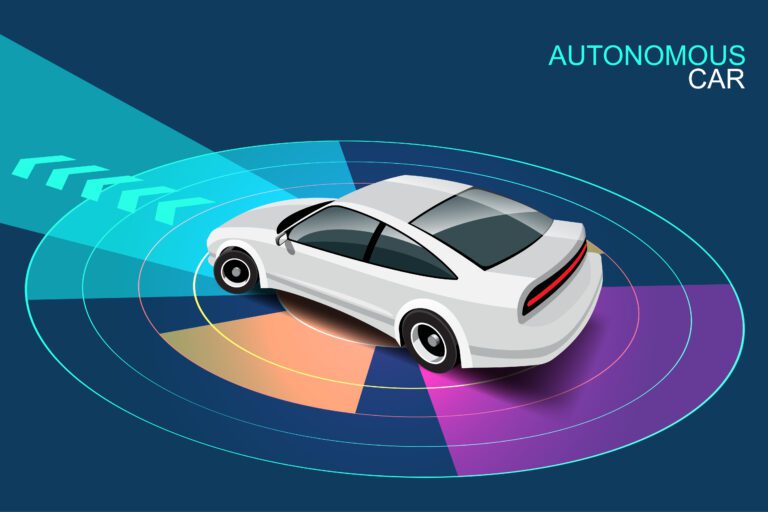The rapid advancements in artificial intelligence (AI) have sparked a global wave of anticipation and fascination. From self-driving cars and virtual assistants to predictive analytics and healthcare diagnostics, AI has become an integral part of our lives. The future of AI promises to take this technology to even greater heights, revolutionizing industries, enhancing decision-making processes, and transforming the way we interact with machines. In this article, we will delve into the key aspects and potential applications of AI, exploring how it is poised to shape the world and unlock a future filled with possibilities.
The Future of AI: Unleashing its Potential
AI, often referred to as machine intelligence, is the development of computer systems that can perform tasks that typically require human intelligence. The future of AI holds tremendous potential for innovation and progress across various sectors, offering solutions to complex problems and unlocking new opportunities. As AI continues to evolve and mature, we can expect significant advancements in its capabilities, leading to a myriad of exciting applications.
Advancements in AI Technology
- Deep Learning and Neural Networks: Deep learning, a subset of AI, focuses on training neural networks with multiple layers to recognize patterns and make decisions. The future of AI will witness advancements in deep learning algorithms, enabling more accurate predictions, natural language processing, and improved image and speech recognition.
- Natural Language Processing (NLP): NLP allows machines to understand and interpret human language. The future of AI will see NLP systems becoming more sophisticated, enabling seamless communication between humans and machines. This will revolutionize virtual assistants, chatbots, and automated customer service interactions.
- Computer Vision: Computer vision enables machines to analyze and understand visual data. The future of AI will bring advancements in computer vision technology, empowering applications such as facial recognition, object detection, and autonomous vehicles. This will have significant implications for security, healthcare, and transportation sectors.
- Robotics and Automation: The future of AI will witness a greater integration of AI with robotics, leading to the development of intelligent robots capable of performing complex tasks in diverse domains. From manufacturing and logistics to healthcare and household assistance, AI-powered robots will augment human capabilities and streamline operations.
Applications of AI in Various Industries
Healthcare: Transforming Diagnosis and Treatment
AI has the potential to revolutionize healthcare by transforming diagnosis, treatment, and patient care. The future of AI in healthcare involves leveraging machine learning algorithms to analyze vast amounts of medical data and generate insights for accurate disease diagnosis. AI-powered systems can assist healthcare professionals in personalized treatment planning, drug discovery, and monitoring patient health remotely, leading to improved outcomes and enhanced efficiency in healthcare delivery.
Transportation: Enabling Autonomous Vehicles
Autonomous vehicles are set to reshape the transportation landscape, and AI is at the core of their development. The future of AI in transportation involves enhancing the capabilities of self-driving cars, trucks, and drones. AI algorithms combined with sensor technology enable vehicles to perceive their environment, make real-time decisions, and navigate safely. This advancement in AI promises to increase road safety, reduce traffic congestion, and revolutionize the way we commute and transport goods.
Finance: Enhancing Decision-Making and Fraud Detection
AI has already made significant inroads in the financial industry, and its future holds even greater potential. Advanced AI algorithms can analyze vast amounts of financial data, identify patterns, and provide insights for making informed investment decisions. In the future, AI will continue to enhance decision-making in finance, providing real-time market analysis, risk assessment, and personalized financial advice. Additionally, AI-powered systems can detect anomalies and patterns indicative of fraudulent activities, improving security and minimizing financial risks.
Education: Personalizing Learning Experiences
The future of AI in education holds the promise of personalized learning experiences for students. AI-powered educational platforms can adapt to individual learning styles and provide tailored content and assessments. Intelligent tutoring systems can offer personalized feedback and recommendations, helping students reach their full potential. Furthermore, AI can assist teachers in automating administrative tasks, allowing them to focus more on individual student support and instructional planning.
Customer Service: Enhancing Engagement and Support
AI has the potential to revolutionize customer service by providing efficient and personalized support. Chatbots powered by AI can handle routine customer inquiries, freeing up human agents to address more complex issues. Natural language processing enables chatbots to understand and respond to customer queries in a conversational manner. In the future, AI-powered customer service systems will become even more advanced, offering seamless interactions and anticipating customer needs through predictive analytics.
Cybersecurity: Strengthening Defenses
With the increasing frequency and sophistication of cyber threats, AI is playing a crucial role in bolstering cybersecurity measures. The future of AI in cybersecurity involves the use of machine learning algorithms to detect and respond to threats in real-time. AI-powered systems can analyze vast amounts of data, identify patterns of malicious activity, and proactively mitigate risks. By leveraging AI, organizations can strengthen their defenses, protect sensitive data, and stay one step ahead of cybercriminals.
Ethical Considerations and Challenges
As AI continues to advance, it is essential to address ethical considerations and overcome challenges associated with its implementation. Some key areas of concern include:
- Privacy and Data Security: The future of AI requires careful management of personal data to ensure privacy and prevent unauthorized access. Striking a balance between utilizing data for AI advancements and safeguarding individual privacy is crucial.
- Algorithm Bias: AI algorithms are only as good as the data they are trained on. Bias within training data can lead to discriminatory outcomes. Addressing algorithmic bias and ensuring fairness and transparency in AI decision-making processes is a priority.
- Job Displacement: The widespread adoption of AI may result in job displacement in certain industries. It is crucial to proactively address the impact on the workforce, reskilling employees, and creating new opportunities in AI-related fields.
- Accountability and Regulation: As AI becomes more pervasive, establishing clear regulations and standards for its development and deployment is essential. Ensuring accountability, transparency, and responsible use of AI technologies are vital to build trust and mitigate potential risks.
Conclusion
The future of AI holds immense potential to revolutionize various industries, improve efficiency, and enhance decision-making processes. With advancements in technology, AI will continue to shape our world, offering solutions to complex problems and unlocking new opportunities. However, ethical considerations and challenges must be addressed to ensure responsible and beneficial integration of AI in our lives. By harnessing the power of AI and navigating the associated challenges, we can create a future where AI-driven innovations empower individuals and businesses, leading to a more efficient, sustainable, and connected world.
FAQs about the Future of AI
Q: What are some potential risks associated with the future of AI?
A: While the future of AI is promising, there are potential risks that need to be addressed. One concern is the possibility of job displacement due to automation. As AI systems become more advanced, certain job roles may become obsolete. Additionally, ethical considerations such as privacy, data security, and algorithmic bias need to be carefully managed to ensure responsible AI development and deployment.
Q: Will AI replace human intelligence completely?
A: AI is designed to augment human intelligence rather than replace it entirely. While AI systems can perform certain tasks more efficiently and accurately, they lack the comprehensive cognitive abilities and creativity that humans possess. The future of AI lies in collaboration between humans and machines, where AI assists in complex decision-making and repetitive tasks, allowing humans to focus on higher-level thinking and innovation.
Q: Can AI systems become self-aware?
A: The concept of AI systems becoming self-aware, also known as artificial general intelligence (AGI), is a topic of ongoing research and debate. While AI has made significant advancements, achieving true self-awareness and consciousness remains a complex challenge. Current AI systems are designed for specific tasks and lack the cognitive capabilities associated with human consciousness.
Q: How can we ensure the ethical use of AI in the future?
A: Ensuring the ethical use of AI requires a multidimensional approach. It involves establishing clear guidelines and regulations for AI development and deployment. Transparency and accountability in AI algorithms and decision-making processes are crucial. Additionally, ongoing research and dialogue on topics like algorithmic bias, privacy protection, and human oversight are necessary to address ethical considerations and ensure responsible AI use.
Q: Will AI lead to a loss of privacy?
A: While AI technologies can process and analyze large amounts of data, privacy concerns can be addressed through robust data protection measures. Regulations and frameworks, such as data anonymization and encryption, can help safeguard individuals’ privacy. Striking a balance between utilizing data for AI advancements and respecting privacy rights is essential to mitigate potential risks and ensure responsible AI implementation.
Q: How will AI impact creativity and innovation?
A: AI has the potential to augment human creativity and innovation. By automating repetitive tasks and providing data-driven insights, AI can free up human capacity for more creative and strategic thinking. AI can assist in generating ideas, identifying patterns, and optimizing processes, enabling individuals and businesses to explore new possibilities and drive innovation in various fields.







